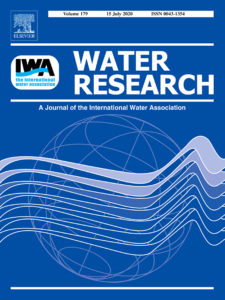 With hundreds of scientific papers about the coronavirus (SARS-CoV-2) released every month, several Italian researchers decided to take a step back and examine 3,600 studies on the fate of the coronavirus in water and wastewater. The review of studies was published in the International Water Association’s Water Research journal.
With hundreds of scientific papers about the coronavirus (SARS-CoV-2) released every month, several Italian researchers decided to take a step back and examine 3,600 studies on the fate of the coronavirus in water and wastewater. The review of studies was published in the International Water Association’s Water Research journal.
While there are a few studies showing infectious virus cultured from patient fecal samples, there is still uncertainty about how much infectious virus is reaching wastewater treatment plants and receiving waters, if any at all. The researchers from three Italian public health ministries wanted to understand the potential of fecal-oral and waterborne transmission of the virus. It’s important to note the World Health Organization continues to report they have seen no cases of fecal-oral transmission of the coronavirus to date.
The Italian researchers review found:
The researchers called for further studies on the fate of SARS-CoV-2 in water and wastewater.